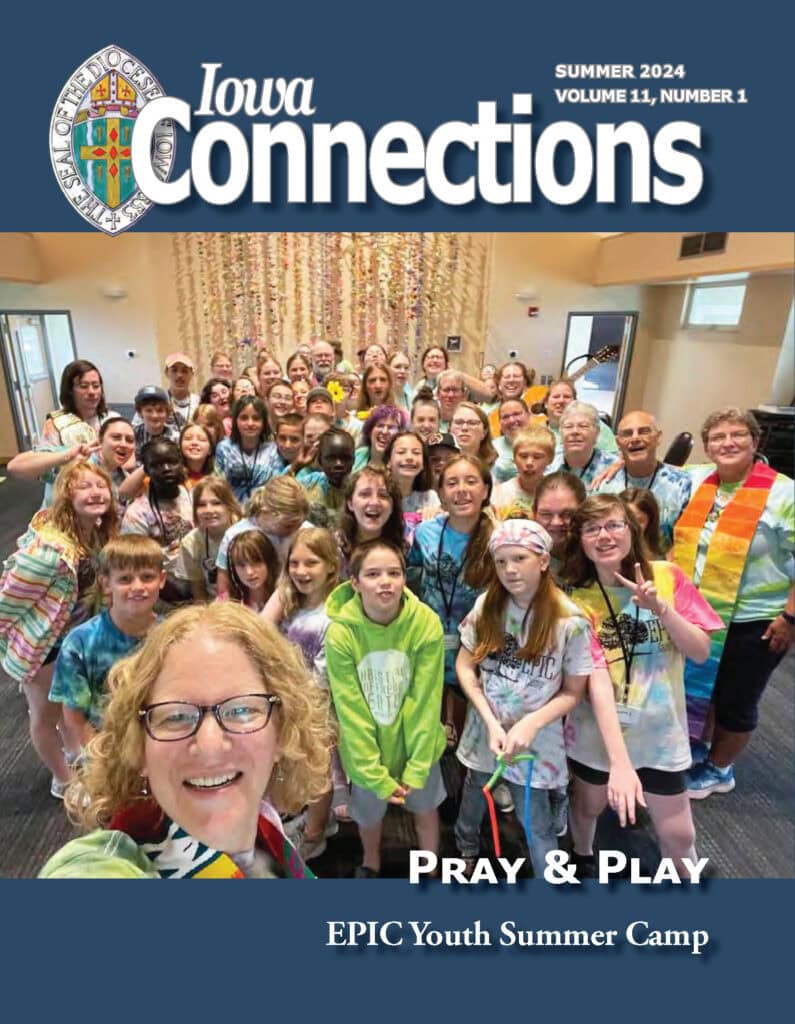Self-Help International Announces Expansion Into Northern Ghana

This article originally appeared in the Waverly Democrat on Mar. 25, 2021.
By Nora Tobin, Self-Help International Executive Director
It was January 2020, and Self-Help International’s Ghana Country Director, Benjamin Kusi, and Self-Help’s Empowering Women and Girls Coordinator, Victoria Yamson, had just returned from a trip to Ullo, 400 kilometers away from Self-Help’s main office in Kumasi, Ghana.
“We can make a difference,” Victoria said.
“They have experienced the can-do spirit,” Benjamin said. “There are a lot of things that they have initiated on their own. Ullo is a community where people have gone to the extent of building a dam with their own hands — a dam, for irrigation, with their own hands. You don’t see this in many parts of this country. No, we learned that most of their roads were built by them. They use their hands with little support from the government.”
For the people of Ullo, irrigation for agriculture is crucial: without irrigation, farmers in northern Ghana must rely exclusively on rain-fed agriculture. Unlike in southern Ghana, there is just one rainy season in Ullo – one season in which to cultivate crops for sustenance and for income.
With a dam for irrigation, it’s possible for people in Ullo to grow food all year round. Income-generating opportunities increase; there is the opportunity for the dignity of work year round.
While Benjamin was meeting with seven of the eight sub-chiefs in Ullo, he had witnessed strong community leadership and the dedicated commitment of the community members to enhancing quality of life. Together, they discussed some of the challenges faced by the community.
Situated in the Upper West region of Ghana, the community is very deprived in terms of infrastructure like roads, schools, hospitals, Kusi said, explaining a pattern of rural-to-urban migration that is familiar to many rural communities around the world and here in Iowa.
“Because of the weather and because of the poor infrastructure situation, a lot of people don’t want to go there and work. Even people from that area, after migrating South for education, don’t want to go back. And that keeps pushing the region very deep into poverty,” Benjamin said.
The three greatest challenges identified by the communities were: access to water; access to financing (particularly for agricultural endeavors); and access to markets to sell produce.
Financial institutions are far away from the rural communities, and interest rates are high. There is an established savings culture established through Village Savings Loan Associations (VSLA). Community members are mobilizing savings well — people are working hard help themselves — but it’s a very slow process when it’s little by little and there just isn’t much money in the system to begin with.
Engineers Without Borders was already actively partnering with Ullo to address access to water. Self-Help’s experience with agricultural entrepreneurship and micro-credit programs made the organization well-poised to serve as a community partner in provide training and micro-loans to help support farmers and women-owned small businesses to generate greater income.
The Paramount Chief sent his son, Zack Saeed, to Kumasi to assess Self-Help’s model of community development that integrates empowering women, alleviating hunger, fighting malnutrition, and improving agriculture. After witnessing the programs and interacting with members of communities that had worked with Self-Help, he was convinced that Self-Help was a trustworthy partner for the people in low-income rural communities such as Ullo.
Zack extended in an invitation for Self-Help to explore a partnership in Ullo. Benjamin and Victoria went up to Ullo and met with many different community leaders, listened to their stories, and heard from them what they wanted.
By the end of the trip, Benjamin and Victoria were convinced that this would be a good partnership. They saw leadership from the community and their demonstrated commitment and started to develop plans.
Self-Help has 20 years of experience working in rural Ghana, but the expansion into northern Ghana marks a new chapter in Self-Help’s history.
The decision to say yes to this invitation is one that Self-Help’s Board of Directors didn’t take lightly. Self-Help is committed to long-term development that is built upon trust and strong community relationships – it can’t be started and stopped and expected to yield strong results.
Self-Help is about creating opportunities. Self-Help’s strength is in its local staff’s expertise: they know the challenges faced by rural farm families, they know the language and the culture, and they have the technical expertise and community development skills to facilitate change. The communities Self-Help partners with have a demonstrated commitment to help themselves. When people can access reliable information and the resources to put that knowledge into action, magic happens.
“We are of the view that when we go to Ullo, by working together with the people, in five to ten years time, these dynamics will change,” Benjamin said.
“We will see mothers having added income. When more crops are produced, the women will either go into processing or go into direct trading, and this will lead to improved household income,” Benjamin said. “Girls will go to school, they will become teachers, and become nurses. Post-harvest losses will be a thing of the past. Agricultural productivity will be enhanced. Their dietary diversity will improve. There will be more women empowerment.”

 Previous Post
Previous Post Next Post
Next Post


